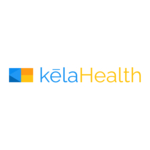KelaHealth Surgical Intelligence Platform Helps Surgeons Avoid Serious Complications

Real-time deployment of AI tool in Duke Colorectal Surgery workflows leads to a reduction in AKI and readmissions in new 12-month prospective study
SAN FRANCISCO–(BUSINESS WIRE)–A new peer-reviewed journal article published in the Journal of Surgical Research shows that the KelaHealth’s Surgical Intelligence Platform was associated with a 21% reduction in acute kidney injury (AKI) and a 24% reduction in costly readmissions following colorectal surgery.1
AKI from colorectal surgery is associated with increased risk of death, shorter survival time, and development of chronic kidney disease (CKD), resulting in increased healthcare burden and unplanned readmissions costing $41 billion annually in the U.S. alone.1 These results further validate the KelaHealth platform’s ability to inject actionable intelligence into improved clinical outcomes, benefitting the surgical ecosystem across providers, payors, and industry partners.
The purpose of the study, conducted at Duke University Medical Center, was to determine if the individualized patient care pathways driven by this platform could leverage artificial intelligence (AI) to lower the rate of AKI and readmission following colorectal surgery.
The study used the commercially-available KelaHealth Surgical Intelligence Platform, powered by machine-learning software, to identify patients who were at high risk for AKI and 30-day readmission following colorectal surgery. Clinicians were made aware of patients’ risk status in real time through the electronic health record (EHR) and KelaHealth’s AI predictive platform prompted medically appropriate, patient-specific, and cost-effective interventions to mitigate the associated risk.
Many models are trained on either national or commercially available datasets, which limits their ability to identify local population-based nuances and tailor clinical recommendations to align with institutional best practices. In this study, KelaHealth’s AI platform analyzed 3,617 patient records, amassing over 200 variables per patient spanning demographics, clinical history, and lab values. The AI model was customized to Duke’s unique patient population to tailor and hone predictive risk models specific to Duke’s patient population over a 5-year period.
To guide surgical treatment, the KelaHealth platform was embedded within the traditional clinical workflow, which enabled surgical care teams to receive and interpret data in a prospective and anticipatory manner. The risk predictions provided by the platform highlighted recommendations for specific interventions designed to improve the outcome for each individual patient. A total of 665 underwent surgery during the treatment period; an additional 1,437 historical control patients were matched to 479 risk-based patients. After implementation of the platform, the authors found a 21% relative reduction in the rate of AKI (11.3% to 8.8%) and 24% relative reduction in rate of readmissions (12% to 8.9%).1
“As a colorectal surgeon, it is encouraging that AI may be a useful tool for predicting risk and preventing post-surgical AKI and readmissions. The use of a risk-prediction platform like Kela’s to help surgeons make more informed treatment decisions could be a game changer for our field,” said Dr. Christopher Mantyh, the study’s senior author and Vice Chair of Clinical Operations at Duke Health.
These results follow on the heels of previous work conducted at Duke using the KelaHealth Surgical Intelligence platform to tailor the utilization of certain medical devices to individualized patient risk predictions, with results highlighting a 41% reduction in surgical site infection (SSI) and $231-$458 per patient cost savings.2
KelaHealth previously announced a partnership with Advocate Aurora Research Institute to improve surgical care outcomes across Advocate Health’s sites, work funded in part by funding secured from marquee investors Intuitive Surgical and Sante Ventures.
Bora Chang, MD, KelaHealth’s founder and CEO added: “During our clinical validation phase we partnered with leading academic institutions and industry partners to demonstrate the real-time clinical benefits of a KelaHealth Surgical Intelligence Platform implementation. With clinical results across multiple surgical disciplines now in hand, it’s clear hospitals need ‘more Kela’ in their workflows to drive better surgical outcomes. We’re now realizing that vision, with software and medtech partnerships designed to deliver their solutions to hospitals at scale with ‘Kela-powered’ intelligence.”
About Duke Surgery
The Duke Department of Surgery has gained a reputation as one of the leading surgery programs in the world.
In keeping with the mission of Duke Health, Duke Surgery is committed to providing outstanding patient care, training tomorrow’s leaders, and conducting innovative research.
About KelaHealth
Based in San Francisco, Calif., KelaHealth is a surgical data analytics company that delivers patient-specific predictive insight and risk stratification software – The KelaHealth Surgical Intelligence Platform – to help improve care quality and clinical operations. Founded by a group of surgeon-scientists, KelaHealth’s goal is to harness AI and machine learning algorithms to reduce patient surgical complications and improve outcomes. For more information about KelaHealth, visit www.KelaHealth.com.
[References]
Duke CRS – https://www.sciencedirect.com/science/article/pii/S0022480423003475#bib12
Duke Vascular – https://www.sciencedirect.com/science/article/abs/pii/S0022480420301001
Contacts
Media
Julie Bishop
julie@walkercomms.com
Walker Communications




